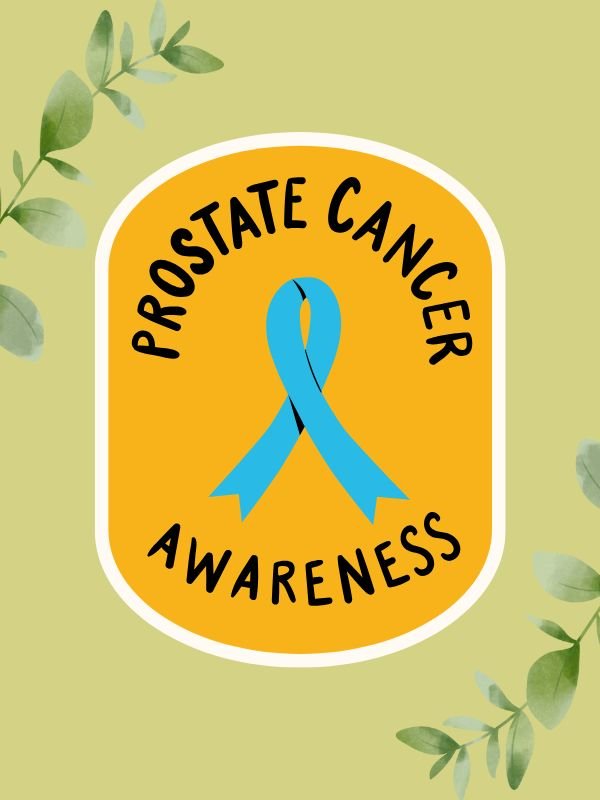
Could Joe Biden’s Diagnosis Be the Wake-Up Call We All Needed About Prostate Cancer?
In the twilight of leadership, Former US President Joe Biden made headlines not just for policy or politics—but for something profoundly human: prostate cancer. A condition that quietly affects one in eight men, creeping in without sound, sometimes without symptoms. Yet, in nature, silence is often the mark of the most dangerous predator.
Join me, if you will, on a journey into one of the most intricate battles of the male body—a tale not just of cells gone rogue, but of nature’s quiet defenders.
A Hidden Foe in the Male Anatomy
What is prostate? The prostate, a small gland tucked deep within the male pelvis, plays a vital role in reproduction. But when its cells begin to divide uncontrollably, this silent organ becomes a battleground. The symptoms often masquerade as benign inconveniences: difficulty urinating, more frequent trips to the toilet—especially at night—or blood in the urine or semen. Sometimes, there are no signs at all.
As reported by the NHS (source), prostate cancer is the most common cancer in men in the UK. It tends to develop slowly, so there may be no signs for years. But once it spreads, the implications are profound—bone pain, erectile dysfunction, and fatigue can follow.
The causes? Age is the biggest risk factor. Most cases develop in men aged 50 or older. Ethnicity also plays a role—Black men are at higher risk, as are those with a family history. But lifestyle, diet, and environmental exposures shape this story too.
Prostate Cancer Diagnosis, Treatment, and Living with It
Early diagnosis is crucial. PSA (prostate-specific antigen) tests, digital rectal exams, and MRIs help detect abnormalities. If cancer is confirmed, treatments range from active surveillance for slow-growing tumors, to surgery, radiotherapy, hormone therapy, and chemotherapy for more aggressive cases.
But for many men, living with prostate cancer becomes a long-term relationship. It demands not just medical treatment but dietary vigilance, emotional support, and a re-evaluation of daily life.
Nature’s Defence: The Role of Phytochemicals
Enter the allies we seldom recognize—phytochemicals. These are naturally occurring compounds found in plants that possess antioxidant, anti-inflammatory, and anti-cancer properties.
A review in the Journal (PMC9496067) illuminates how certain phytochemicals directly interfere with prostate cancer cell pathways. They inhibit proliferation, reduce inflammation, and trigger apoptosis—cellular self-destruction—in cancer cells.
Another study (PMC6683070) highlights phytochemicals' capacity to suppress androgen receptors, a key driver in prostate cancer development. The research explores how diet can act not merely as prevention, but as a therapeutic ally.
ScienceDirect (link) takes it further—phytochemicals may even enhance the efficacy of conventional treatments and reduce side effects, making recovery more manageable and holistic.
The Plant Warriors and Their Sources
Let’s meet some of these molecular guardians:
- Lycopene: Found richly in tomatoes, especially when cooked. It’s known to reduce PSA levels and slow cancer cell growth.
- Sulforaphane: Abundant in broccoli and other cruciferous vegetables. This compound boosts detoxification enzymes and protects DNA.
- Epigallocatechin gallate (EGCG): A green tea catechin, shown to inhibit tumor growth and promote cancer cell death.
- Curcumin: The active compound in turmeric. It suppresses inflammation and interferes with cancer cell signaling pathways.
- Genistein: A soy isoflavone, studied for its ability to inhibit tumor angiogenesis (blood supply growth).
- Resveratrol: Found in grapes and berries, it helps regulate apoptosis and reduces oxidative stress.
Each compound doesn’t work in isolation but as part of a symphony—a plant-based ecosystem of healing.
A Lifestyle Grounded in Prevention
We must look to prevention as much as we do to cure. Diets rich in whole foods, especially colourful fruits and vegetables, lean proteins, and healthy fats, can dramatically alter risk trajectories.
Consider this: populations with plant-forward diets, like those in Okinawa or rural China, report significantly lower rates of prostate cancer. It's not just genetics—it's lifestyle.
Conclusion: A Call to Action for Men and Their Loved Ones
When imbalance occurs, nature often provides the remedy—if only we choose to listen.
Joe Biden’s diagnosis is not just a personal story—it’s a big signal. One that invites men to be proactive, to adopt diets that defend, and to embrace nature’s pharmacy.
Let us not wait for illness to knock at the door. Let us begin now—at the dinner table, in the produce aisle, and with every mindful choice—to support not only longevity but vitality.
Disclaimer:
The information provided is solely for educational purposes. This content does not replace medical advice, diagnosis, or treatment. Consult a qualified healthcare professional for any medical queries or concerns. BeatNaturally does not promote or suggest specific tests, doctors, procedures, viewpoints, or details mentioned in the content.
